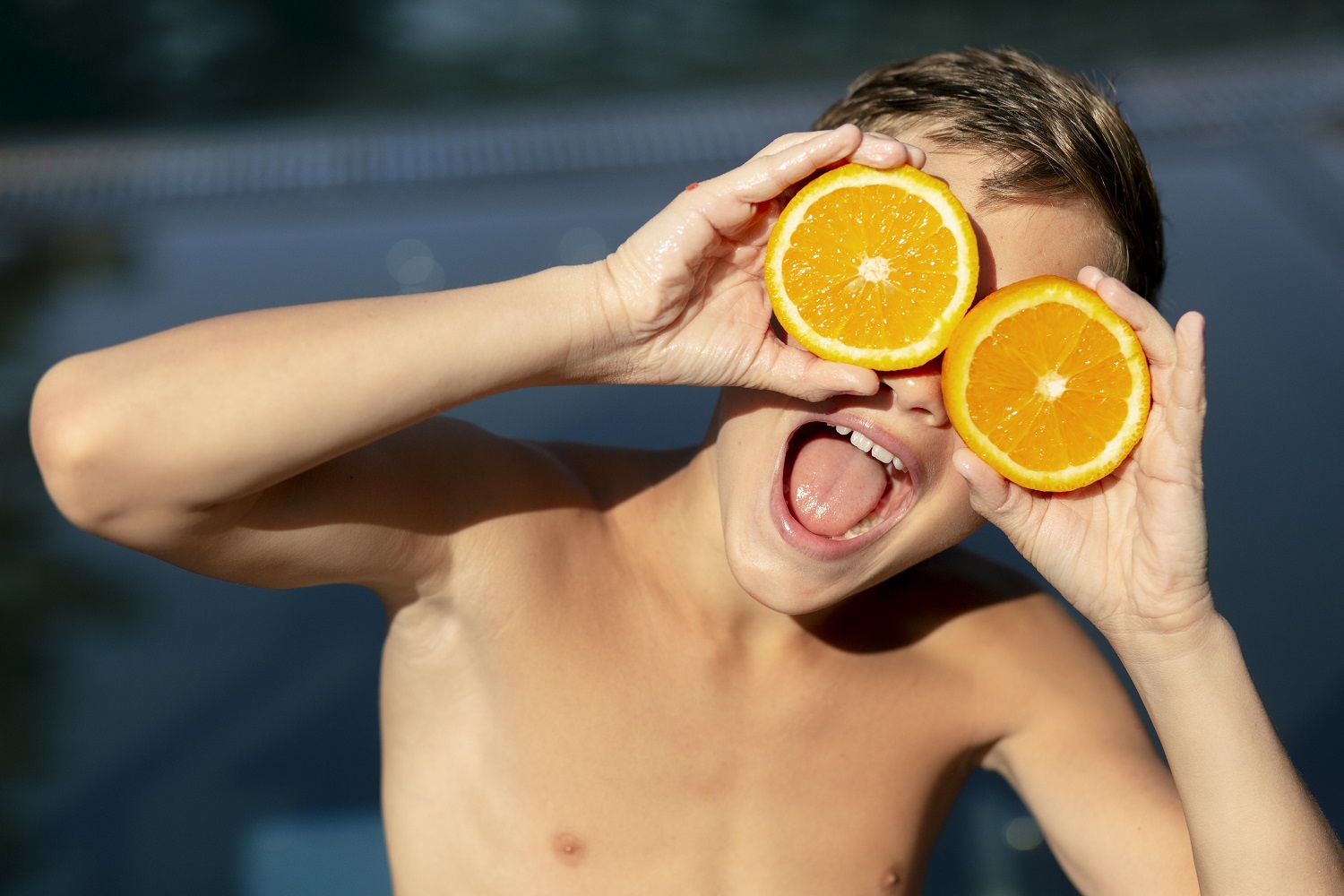Os efeitos de uma intervenção de educação nutricional no conhecimento sobre alimentação esportiva durante uma temporada competitiva em nadadores adolescentes de alto nível

Downloads
Palavras-chave:
Educação, Natação, Atletas Adolescentes, Conhecimento, Nutrição, AlimentaçãoResumo
O objetivo deste estudo foi avaliar os efeitos de uma intervenção de educação nutricional de sete semanas no conhecimento de nutrição esportiva (SNK) de nadadores adolescentes do Reino Unido altamente treinados. Quinze nadadores adolescentes nacionais e internacionais (homens = 5; mulheres = 10, 15,5 ± 1,1 anos, 170,2 ± 7,5 cm, 60,3 ± 5,7 kg) participaram do estudo durante sete semanas consecutivas da temporada competitiva de natação. Os participantes receberam 30 minutos de educação nutricional uma vez por semana em um ambiente de sala de aula após terem concluído seu treinamento regular de natação. Um estudante de graduação em nutrição esportiva ministrou todas as sessões de educação nutricional e questionários SNK foram administrados aos participantes antes e depois da intervenção. O escore SNK total médio melhorou em 8,3% (DP = 8,4%, IC 95% = 4,1–12,6; p = 0,006; ES = 1,0) após as sessões de educação nutricional. Individualmente, dez nadadores melhoraram significativamente sua pontuação total do SNK, enquanto quatro nadadores não melhoraram e um nadador teve desempenho significativamente pior após a intervenção. Independente disso, o conhecimento dos nadadores sobre hidratação melhorou em 22,2% (DP = 20,6%, 95% CI = 11,8–32,6, p = 0,004, ES = 1,1) ao longo do período de sete semanas, que foi o único tópico de nutrição a ter uma pontuação de conhecimento significativamente aumentada. O presente estudo sugere, portanto, que uma intervenção de educação nutricional pode influenciar positivamente o SNK de nadadores adolescentes de alto nível.
Artigo integrante da Edição Especial "NUTRIÇÃO E SUPLEMENTAÇÃO EM NATAÇÃO E ESPORTES AQUÁTICOS"
Referências
(1) Sawyer SM, Afifi RA, Bearinger LH, Blakemore SJ, Dick B, Ezeh AC, et al. Adolescence: a foundation for future health. The Lancet. 2012 Apr;379(9826):1630–40.
(2) Desbrow B, McCormack J, Burke LM, Cox GR, Fallon K, Hislop M, et al. Sports Dietitians Australia Position Statement: Sports Nutrition for the Adolescent Athlete. International Journal of Sport Nutrition and Exercise Metabolism. 2014 Oct;24(5):570–84.
(3) Shaw G, Boyd KT, Burke LM, Koivisto A. Nutrition for Swimming. International Journal of Sport Nutrition and Exercise Metabolism. 2014 Aug;24(4):360–72.
(4) Costill DL, Flynn MG, Kirwan JP, Houmard JA, Mitchell JB, Thomas R, et al. Effects of repeated days of intensified training on muscle glycogen and swimming performance. Medicine & Science in Sports & Exercise. 1988 Jun;20(3):249–54.
(5) Matsuda T, Kato H, Suzuki H, Mizugaki A, Ezaki T, Ogita F. Within-Day Amino Acid Intakes and Nitrogen Balance in Male Collegiate Swimmers during the General Preparation Phase. Nutrients. 2018 Nov 20;10(11):1809.
(6) Sato A, Shimoyama Y, Ishikawa T, Murayama N. Dietary Thiamin and Riboflavin Intake and Blood Thiamin and Riboflavin Concentrations in College Swimmers Undergoing Intensive Training. International Journal of Sport Nutrition and Exercise Metabolism. 2011 Jun;21(3):195–204.
(7) Giolo De Carvalho F, Rosa FT, Miguel Suen VM, Freitas EC, Padovan GJ, Marchini JS. Evidence of zinc deficiency in competitive swimmers. Nutrition. 2012 Nov;28(11-12):1127–31.
(8) Hawley JA, Williams MM. Dietary intakes of age-group swimmers. British Journal of Sports Medicine. 1991 Sep 1;25(3):154–8.
(9) Kabasakalis A, Kalitsis K, Tsalis G, Mougios V. Imbalanced Nutrition of Top-Level Swimmers. International Journal of Sports Medicine. 2007 Sep;28(9):780–6.
(10) VanHeest JL, Rodgers CD, Mahoney CE, De Souza MJ. Ovarian Suppression Impairs Sport Performance in Junior Elite Female Swimmers. Medicine & Science in Sports & Exercise. 2014 Jan;46(1):156–66.
(11) Birkenhead KL, Slater G. A Review of Factors Influencing Athletes’ Food Choices. Sports Medicine. 2015 Aug 5;45(11):1511–22.
(12) Heaney S, O’Connor H, Michael S, Gifford J, Naughton G. Nutrition Knowledge in Athletes: A Systematic Review. International Journal of Sport Nutrition and Exercise Metabolism. 2011 Jun;21(3):248–61.
(13) Guinard JX, Seador K, Beard JL, Brown PL. Sensory acceptability of meat and dairy products and dietary fat in male collegiate swimmers. International Journal of Sport Nutrition [Internet]. 1995 Dec 1 [cited 2021 Jan 7];5(4):315–28. Available from: https://pubmed.ncbi.nlm.nih.gov/8605518/
(14) Hoogenboom BJ, Morris J, Morris CT, Schaefer K. Nutritional knowledge and eating behaviors of female, collegiate swimmers. N. Am. J. Sports Phys. Ther. NAJSPT 2009; 4, 139–148.
(15) Webb MC, Beckford SE. Nutritional Knowledge and Attitudes of Adolescent Swimmers in Trinidad and Tobago. Journal of Nutrition and Metabolism. 2014;2014:1–7.
(16) Chapman P, Toma RB, Tuveson RV, Mary Casey Jacob. Nutrition knowledge among adolescent high school female athletes.Adolescence 1997 Jan 1;32(126):437–46.
(17) DANIEL NVS, JÜRGENSEN LP, PADOVANI R da C, JUZWIAK CR. Impact of an Interdisciplinary Food, Nutrition and Health Education Program for adolescent Brazilian volleyball players. Revista de Nutrição. 2016 Aug;29(4):567–77.
(18) Doyle-Lucas AF, Davy BM. Development and evaluation of an educational intervention program for pre-professional adolescent ballet dancers: nutrition for optimal performance.J. Dance Med. Sci. Off. Publ. Int. Assoc. Dance Med. Sci. 2011 Jun 1;15(2):65–75.
(19) Heikkilä, Lehtovirta, Autio, Fogelholm, Valve. The Impact of Nutrition Education Intervention with and Without a Mobile Phone Application on Nutrition Knowledge Among Young Endurance Athletes. Nutrients. 2019 Sep 18;11(9):2249.
(20) Patton-Lopez M, Manore M, Branscum A, Meng Y, Wong S. Changes in Sport Nutrition Knowledge, Attitudes/Beliefs and Behaviors Following a Two-Year Sport Nutrition Education and Life-Skills Intervention among High School Soccer Players. Nutrients. 2018 Nov 2;10(11):1636.
(21) Philippou E, Middleton N, Pistos C, Andreou E, Petrou M. The impact of nutrition education on nutrition knowledge and adherence to the Mediterranean Diet in adolescent competitive swimmers. Journal of Science and Medicine in Sport. 2017 Apr;20(4):328–32.
(22) Walsh M, Cartwright L, Corish C, Sugrue S, Wood-Martin R. The Body Composition, Nutritional Knowledge, Attitudes, Behaviors, and Future Education Needs of Senior Schoolboy Rugby Players in Ireland. International Journal of Sport Nutrition and Exercise Metabolism. 2011 Oct;21(5):365–76.
(23) Wong SS, Manore MM, Pilolla K, Skoog I, Hill D, Hand T. WAVE Project: Sport Nutrition Education Resources. Journal of Youth Development. 2018 Sep 18;13(3):275–83.
(24) Dankel SJ, Loenneke JP. Effect Sizes for Paired Data Should Use the Change Score Variability Rather Than the Pre-test Variability. Journal of Strength and Conditioning Research. 2018 Oct;1.
(25) Cohen J. A power primer. Psychological Bulletin [Internet]. 1992;112(1):155–9. Available from: https://pubmed.ncbi.nlm.nih.gov/19565683/
(26) Cumming G. The New Statistics. Psychological Science. 2013 Nov 12;25(1):7–29.
(27) Reading KJ, McCargar LJ, Marriage BJ. Adolescent and Young Adult Male Hockey Players: Nutrition Knowledge and Education. 1999 Jan 1;60(3):166–9.
(28) Ryan RM, Deci EL. Self-Determination theory and the facilitation of intrinsic motivation, social development, and well-being. American Psychologist. 2000;55(1):68–78.
(29) Fabrício Eduardo Rossi, Landreth A, Beam S, Jones T, Norton L, Cholewa JM. The Effects of a Sports Nutrition Education Intervention on Nutritional Status, Sport Nutrition Knowledge, Body Composition, and Performance during Off Season Training in NCAA Division I Baseball Players. 2017 Mar 1;16(1):60–8.
OBS.:
Artigo adaptado e traduzido para o português pelos editores de NADAR! SWIMMING MAGAZINE para republicação, conforme normas de submissão do periódico. Versão original em: https://www.mdpi.com/2072-6643/13/8/2713 LICENÇA ORIGINAL E DA ADAPTAÇÃO: © 2021 by the authors https://creativecommons.org/licenses/by/4.0/ .
Publicado
Como Citar
Edição
Seção
ARK
Licença
Copyright (c) 2023 Wee Lun Foo, Mark A Faghy, Andy Sparks, Josh W Newbury, Lewis A Gough

Este trabalho está licenciado sob uma licença Creative Commons Attribution 4.0 International License.






